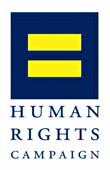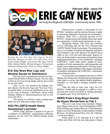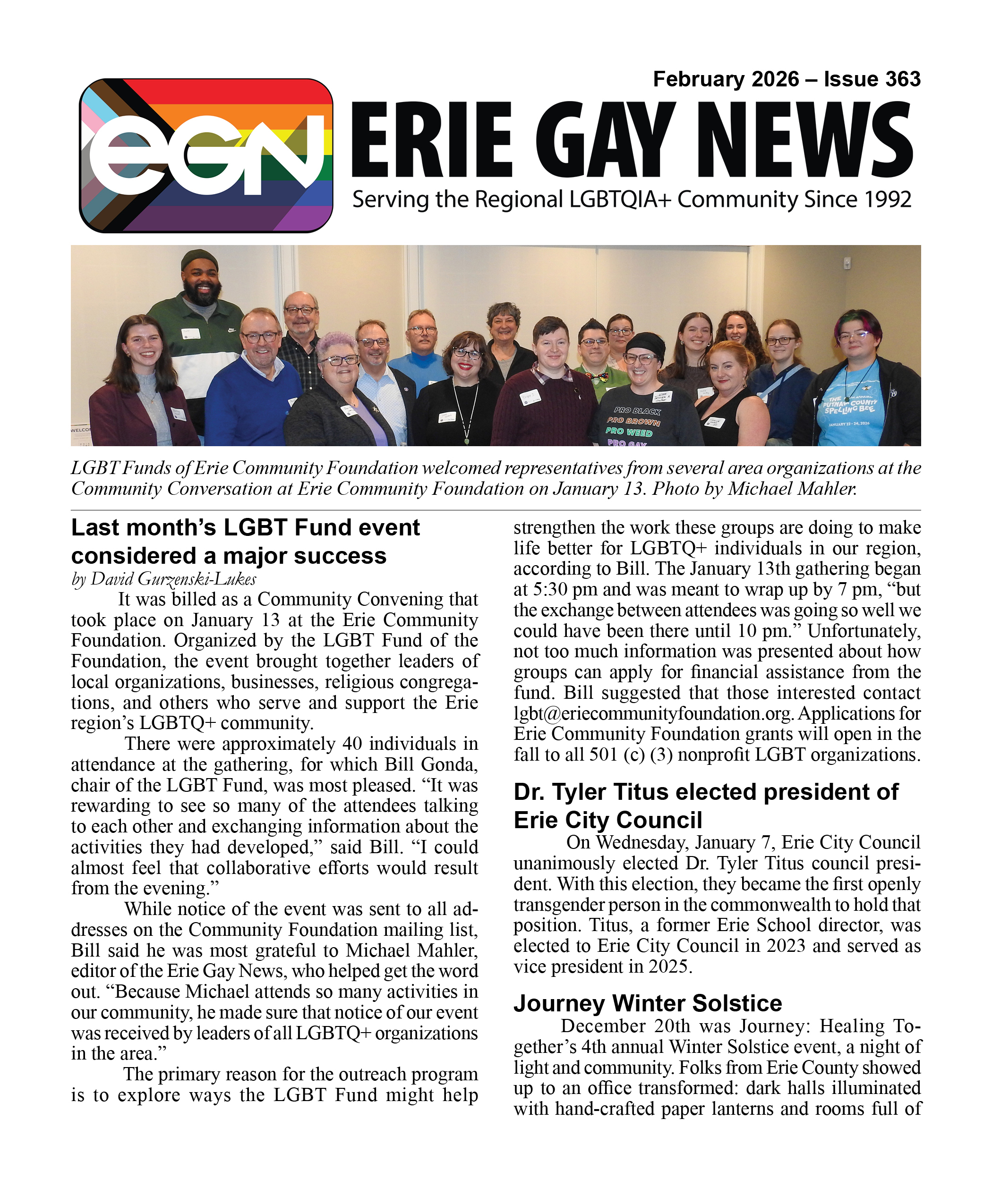Pennsylvania's LGBTQ+ Laws Rated in Human Rights Campaign Foundation's 2021 State Equality Index
Despite the most anti-transgender state legislative season in history, a record breaking number of states rank in top category
WASHINGTON - January 20, 2022 -Today, the Human Rights Campaign Foundation, the educational arm of the nation's largest lesbian, gay, bisexual, transgender and queer (LGBTQ+) civil rights organization, and the Equality Federation Institute released their 8th annual State Equality Index (SEI). The SEI is a comprehensive report that groups states into several broad categories regarding the type of advocacy that occurs there and details statewide laws and policies that affect LGBTQ+ people and their families. Pennsylvania falls into the category, "Solidifying Equality."
This year a record breaking 21 states and Washington, D.C. were recognized in the SEI for prioritizing innovative measures to advance LGBTQ+ equality. These states have robust LGBTQ+ non-discrimination laws covering housing, healthcare and public accommodations. Although there has been incredible progress, by only March 2021, state legislatures across the country had filed more legislation that specifically targeted the transgender community than in modern history. In contrast, 2020 had previously held the record of the most anti-transgender legislation introduced, with 79 pieces of legislation-2021 had 147.
"The 2021 State Equality Index outlines and analyzes how over a dozen states across the country led an intentional, coordinated attack on the transgender community, particularly children, that has led to villiainization, blatant discrimination, and ultimately, violence," said JoDee Winterhof, Human Rights Campaign Senior Vice President of Policy and Political Affairs. "On the other hand, we have seen a record-breaking amount of states step-up for LGBTQ+ equality and fight to pass laws that champion inclusivity and equity in the face of sweeping discrimination. It is clear that considerable effort has been, and continues to be made, to prevent anti-LGBTQ+ legislation from becoming law, progress toward LGBTQ+ equality in the states truly cannot be stopped."
In 2021, anti-transgender legislation took several forms: 81 bills aimed to prevent transgender youth from playing school sports consistent with their gender identity, and 43 bills to prevent transgender youth from receiving gender-affirming healthcare. Additionally, two bathroom bills were passed in Tennessee and Arkansas passed the first-ever ban preventing transgender youth from accessing gender-affirming care. By the end of the 2021 legislative session, another record 13 bills attacking transgender youth passed into law.
The SEI's assessment of statewide LGBTQ+-related legislation and policies in the areas of parenting laws and policies, religious refusal and relationship recognition laws, non-discrimination laws and policies, hate crime and criminal justice laws, youth-related laws and policies and health and safety laws and policies has placed each state in one of four distinct categories based on the type of advocacy that takes place there:
- Twenty-One states and the District of Columbia are in the highest-rated category, "Working Toward Innovative Equality": California; Colorado; Connecticut; Delaware; District of Columbia; Hawaii; Illinois; Iowa, Maine; Maryland; Massachusetts; Minnesota; Nevada; New Hampshire; New Jersey; New Mexico; New York; Oregon; Rhode Island; Vermont; Virginia and Washington.
- Three states are in the category "Solidifying Equality": Alaska; Pennsylvania; and Utah.
- Four states are in the category "Building Equality": Florida; Kansas; North Dakota; and Wisconsin.
- Twenty-Two states are in the lowest-rated category "High Priority to Achieve Basic Equality": Alabama; Arizona; Arkansas; Georgia; Idaho; Indiana; Kentucky; Louisiana; Michigan; Mississippi; Missouri; Montana; Nebraska; North Carolina; Ohio; Oklahoma; South Carolina; South Dakota; Tennessee; Texas; West Virginia; and Wyoming.
"This past year was one of the toughest in recent memory for our state partners and the LGBTQ+ community. Our opposition, after learning to refine their attacks by taking aim at particularly vulnerable communities like transgender youth, covered the country with anti-trans sports and medical care bans," said Fran Hutchins, Executive Director of the Equality Federation Institute. "Thanks to the work of advocates in the states, only a small percentage of these harmful bills were enacted. Despite difficult legislative sessions in many states, I am so proud of the work being done to make the lives of LGBTQ+ people better and more accepting no matter the community they call home."
Although the transgender community recieved the brunt of discriminatory legislation, anti-LGBTQ+ bills took other forms as well, and one of the most notable trends was a resurgence of laws that carve all-new religious exemptions into existing laws that allows people to refuse to serve LGBTQ+ individuals. Across the country, 44 religious refusal bills were filed including about a dozen so-called Religious Freedom Restoration Act (RFRA) bills and a dozen more bills that would allow for religious refusals, including against LGBTQ+ patients, in medical care. South Dakota and Montana passed RFRA legislation and Ohio passed a medical care refusal bill.
While this historically bad year has been the backdrop of the 2021 legislative session, 44 new pro-equality laws were also passed. The equality bills range in topic from ensuring that utility companies allow consumers to change their names and pronouns; to streamlining adoption requirements for stepparents; to ensuring that places of public accommodation have gender-neutral bathrooms; to make it easier to update birth and death certificates with correct names and gender markers. All ensure that LGBTQ+ people are able to take one step closer to full legal and lived equality.
HRC Foundation's full State Equality Index report, including detailed scorecards for every state, and a preview of the 2022 state legislative session is available online at www.hrc.org/sei.
The Human Rights Campaign Foundation is the educational arm of the Human Rights Campaign (HRC), America's largest civil rights organization working to achieve equality for lesbian, gay, bisexual, transgender and queer (LGBTQ+) people. Through its programs, the HRC Foundation seeks to make transformational change in the everyday lives of LGBTQ+ people, shedding light on inequity and deepening the public's understanding of LGBTQ+ issues, with a clear focus on advancing transgender and racial justice. Its work has transformed the landscape for more than 15 million workers, 11 million students, 1 million clients in the adoption and foster care system and so much more. The HRC Foundation provides direct consultation and technical assistance to institutions and communities, driving the advancement of inclusive policies and practices; it builds the capacity of future leaders and allies through fellowship and training programs; and, with the firm belief that we are stronger working together, it forges partnerships with advocates in the U.S. and around the globe to increase our impact and shape the future of our work.



